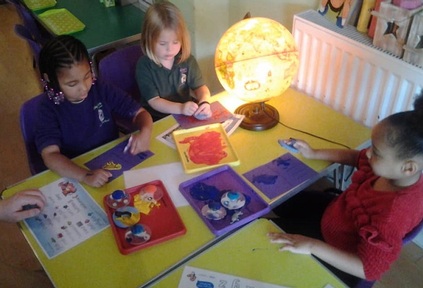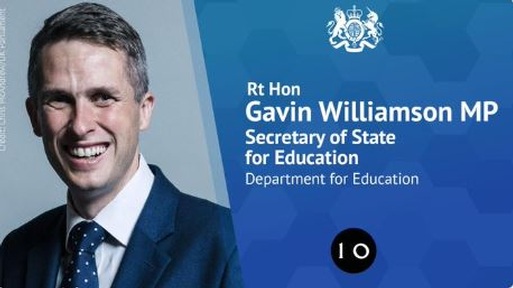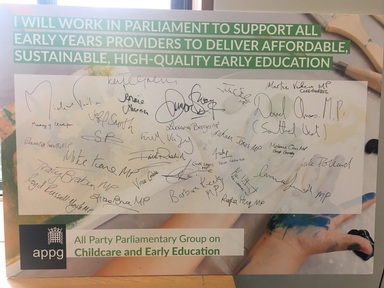Free nursery places for disadvantaged two-year-olds to be funded by cutting Early Intervention Grant
Early years organisations fear the Government is funding its expansion of the free early years entitlement scheme by cutting the Early Intervention Grant.
![]() Nick Clegg, Liberal-Democrat leader
Nick Clegg, Liberal-Democrat leader
In the same week that the Government announced £100m funding for nurseries in England to expand their premises so they can offer free early years education to disadvantaged two-year-olds, local authorities have found their Early Intervention Grants (EIG) have been cut.
Liberal Democrat leader, Nick Clegg, announced the £100m funding which comes from the Department for Education’s capital budget.
However it has now emerged in a Government business rates retention document published in July this year that the government plans to hold back £150m from the Early Intervention Grant in 2013/14 and 2014/15 and retain it ‘centrally for future use in funding early intervention and children's services’.
The EIG is used by councils to pay for Sure Start centres and parents and toddler projects and short breaks for disabled children.
Neil Leitch, chief executive of the Early Years Alliance, said: “We are extremely disappointed to learn that the Department for Education intends to fund the extension of the free entitlement to two year olds by taking it from the Sure Start budget and by top-slicing the Early Intervention Grant.”
“We have long argued that the offer for two year olds is grossly underfunded but it appears a misconceived move to have another vital source of support raided to part-fund the scheme.”
He believes early years providers would never have supported the introduction of the offer for two year olds had they known “it would jeopardise much-needed early intervention”.
![]() Neil Leitch, chief executive of the Pre-School Learning Alliance
Neil Leitch, chief executive of the Pre-School Learning Alliance
He added: “If this Government wants to show how seriously it takes wanting to help the most disadvantaged children and families in our society, then it must find an alternate source of income and not raid one pot of funding for disadvantaged children to put in another.”
Anne Longfield, chief executive of , also expressed her concern over the Government’s decision and said: “4Children are alarmed to hear today that the Government may be backing away from its commitment to early intervention, by cutting the Early Intervention Grant which funds children’s centres alongside other core services for young people’s learning, development, health and wellbeing by as much as £150m. That the Government is planning to abolish the Early Intervention Grant itself entirely next year only adds to our concern.”
She claims these proposed changes “pose very real risks to both the future of Sure Start Children’s Centres in England, and the wider move to earlier help. Removing the obligation on local authorities to invest in early intervention is potentially putting key services at risk which will cost the country more in the long run.”
4Children wants the Government to guarantee a ring-fenced Early Intervention Fund, with a commitment to cyclical growth, for the remainder of Parliament. However a spokesman for the Department for Education said: “The Government believes that local authorities should be free to take their own decisions about how much to spend on their local needs and priorities. This is why there are no ringfences within the Early Intervention Grant. Local authorities will recognise the need to increase investment in early education for two-year-olds over the next two years as we build towards a duty to provide free places for 20 per cent of two-year-olds from 2013-14 and then 40 per cent of two-year-olds from 2014-15.”
Ms Longfield also asked for “an urgent explanation of where the £150m reduction is planned to be spent, and a commitment that it will be reallocated to local authorities if it is not to be invested in early intervention programmes.”
Sharon Hodgson, the shadow children's minister, criticised Ministers for promising that the free early years entitlement would be funded with new money.
“It now turns out that it will be found from cutting the budget for children's centres and programmes to help vulnerable children – robbing Peter to pay Paul,” she said.
The Government claims the plan to expand free nursery education for disadvantaged two-year-olds will improve the lives and futures of children from poorer backgrounds.
However MP Graham Allen who produced a Government commissioned report on early intervention earlier this year, said he is baffled by the Government's decision and fears it could undermine the whole early intervention agenda, calling it “economic folly”.
![]() MP Graham Allen
MP Graham Allen
Funding for the two-year-olds is currently being given to local authorities through the Early Intervention Grant However from 2013-14 funding for two-year-olds will be included within the Dedicated Schools Grant.
From September 2013, children from families meeting the criteria also used to decide eligibility for free school meals, and looked after children, will be eligible for free early years education that is currently only available to three to four-year-olds. This will be around 20 per cent of all two-year-olds in England.
From September 2014, the Government plans to introduce new eligibility criteria, so that in total some 260,000 children in England (around 40 per cent of all two-year-olds) will be eligible.
All 152 local authorities have been delivering a targeted offer to some of their most disadvantaged two-year-olds since September 2009.
Latest News Analysis
 06-Aug-19
Nursery boss says 'cultural capital has always been important, it shouldn't be new'
06-Aug-19
Nursery boss says 'cultural capital has always been important, it shouldn't be new'
 25-Jul-19
Gavin Williamson appointed education minister
25-Jul-19
Gavin Williamson appointed education minister
 17-Jul-19
Flexible Working Bill for all jobs gets MPs approval - delighting parents, disabled and carers
17-Jul-19
Flexible Working Bill for all jobs gets MPs approval - delighting parents, disabled and carers
 03-Jul-19
MPs blame government policies for nursery closures in deprived areas
03-Jul-19
MPs blame government policies for nursery closures in deprived areas
 14-May-19
Number of schools wanting to pilot Reception Baseline Assessments 'embarrassingly low'
14-May-19
Number of schools wanting to pilot Reception Baseline Assessments 'embarrassingly low'